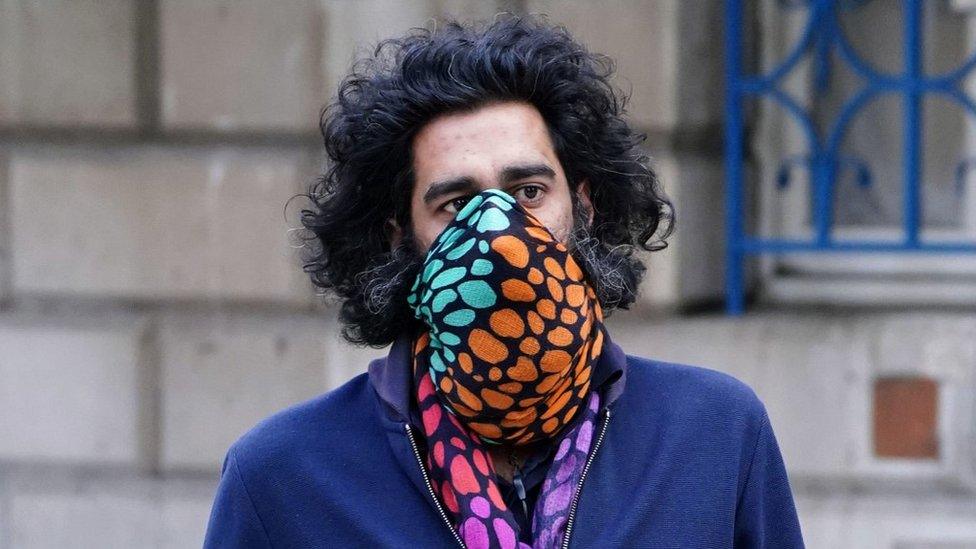Sophie Ellis-Bextor stalker warned he could face prosecution
- Published

Sophie Ellis-Bextor was bombarded with abusive messages
A stalker who targeted Sophie Ellis-Bextor will face criminal prosecution if he continues to contact her.
Nishil Patel, 39, bombarded the Murder On The Dancefloor singer with "unsettling" and abusive messages on Instagram.
He also left unwanted presents at her neighbour's home - believing it to be hers - and repeatedly turned up outside the property, a court heard.
City of London Magistrates' Court granted a stalking protection order.
Prosecutor Felix Keating told magistrates Patel had targeted the 42-year-old star after meeting her in passing in July last year.
He said Patel had sent hundreds of "concerning" and "upsetting" messages, which had become increasingly abusive.
He continued to contact her over social media even after she blocked his account, instead messaging her under a username which was his name spelt backwards, the court heard.

Nishil Patel was warned by police after leaving 30 presents at a house he believed belonged to the singer
Patel also started turning up outside a house he believed to be Ms Ellis-Bextor's home.
On one visit, which led to his arrest on 26 April, he rang the doorbell and left a sticker on a car, magistrates were told.
Police gave him a warning after he left 30 wrapped parcels, addressed to the singer, at the home of her neighbour on 30 October last year.
He also left a wallet featuring his initials and messaged her to say "the wallet is blue, not black like your soul".
The court was told Patel also contacted her husband, Richard Jones, bass player with the band The Feeling, and one of their five children, online.
A statement from Ms Ellis-Bextor, read by Mr Keating, said Patel's behaviour had "really unsettled" her.

Ms Ellis-Bextor said Patel's behaviour had "really unsettled" her
Patel did not contest the allegations and, when asked about any objections, he replied: "Please make the order."
The court heard that Patel lost his job as a tax consultant in February last year, suffers from bipolar disorder, and was once sectioned.
The stalking protection order means he will face criminal prosecution if he contacts the singer, physically approaches her, or goes to her address.
He must also provide police with passwords for any devices he owns which are capable of recording internet history, along with the passwords to any social media accounts he controls.
The measures will be in place for five years.